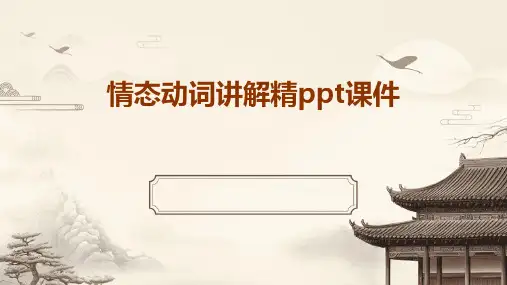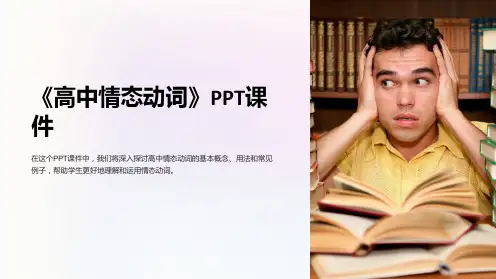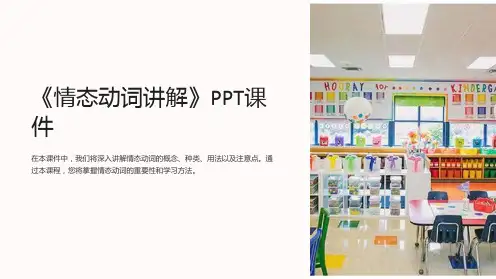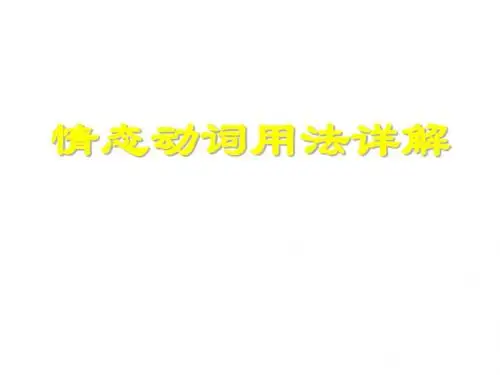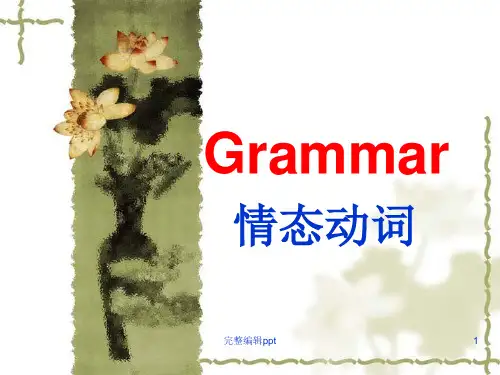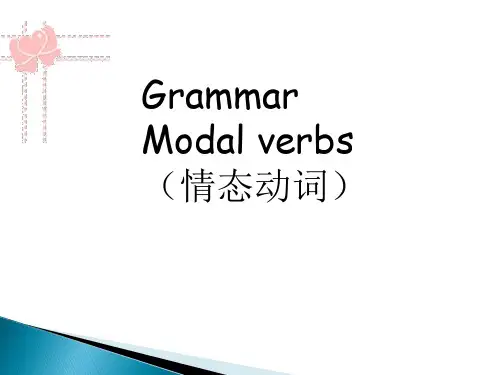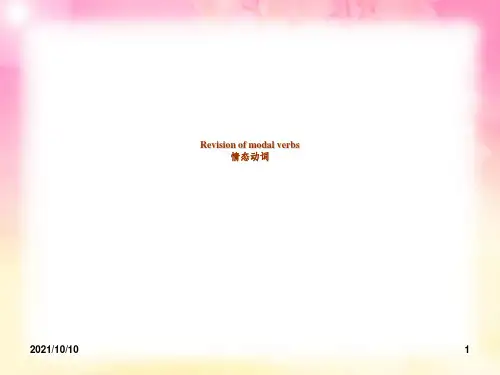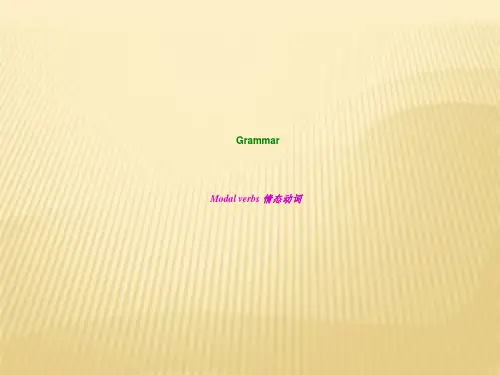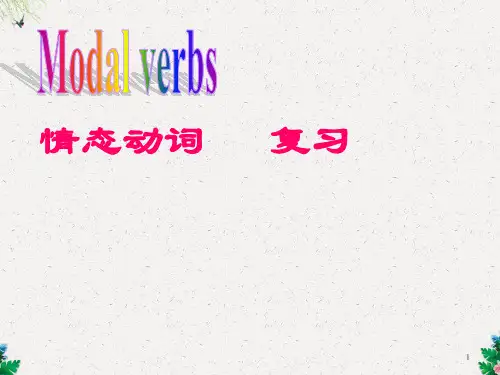2021/10/10
19
4. Tom ought not to ___ me your secret,
but he meant no harm.
A. have told
B. tell
C. be telling
D. having told
答案A 由于后句为过去时,告诉秘密的动作又发生在其前因,此地应用过去完成时,但它在情态动词 ought to 后,所以用have。
Must I go there in person? 我必须亲自去吗? We must always follow the Party.我们要永远跟着党走。 ②表示“必然”
All men must die.人总是要死的。 ③表示推测,“准是”、“一定”,否定形式为can’t
She must be at home now.她现在准在家。
- May I come in? -Might I go to the hospital to see my father? ②否定形式为may not, 但表示“不可以”或“禁止”时用must not (mustn’t). e.g.-May I watch TV now?我现在可以看电视吗? -No, you mustn’t. 不,你不可以看。 ③ may, might还可以表示推测,但might可能性比may 小。 e.g. There may be a few copies left in the bookstore. 书店里可能还有几本书。 They might have been killed by radiation. ④may 放在句首, 表示祝愿。 e.g. May God bless you!
e.g. You don’t have to tell him about it. 你没必要把此事告诉他。
